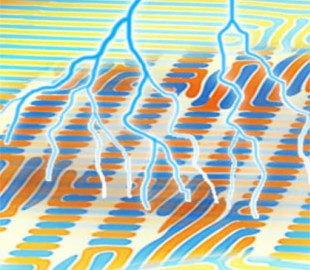
According to scientists, modern supercomputers need a material that would increase the energy efficiency of microelectronics.
Researchers from Argonne National Laboratory achieved adaptive response in a ferroelectric device, noting that this achievement may find application in energy-efficient microelectronics. About it writes Interesting Engineering.
According to the scientists, a surprising adaptive behavior has been observed in the ferroelectric material, which can evolve step by step to the desired result depending on the number of photons from the light pulses hitting the material. The new adaptive response responds to light pulses in a way that resembles the plasticity of neural networks.
200% Deposit Bonus up to €3,000 180% First Deposit Bonus up to $20,000As Haidan Wen, a physicist at Argonne National Laboratory of the US Department of Energy, noted, modern supercomputers and data centers require many megawatts of power. One of the challenges is finding materials for more energy-efficient microelectronics.
“A promising candidate is a ferroelectric material that can be used for artificial neural networks as a component of energy-efficient microelectronics,” — the scientist emphasized.
Images obtained as a result of the experiment showed that network nanodomains are created, erased and rebuilt under the influence of light pulses. The regions and boundaries of these domains were developed and rebuilt at lengths from 10 nanometers — about 10,000 times smaller than a human hair — up to 10 micrometers, which roughly corresponds to the size of a cloud drop. The end product depended on the number of light pulses used to stimulate the sample.
Argonne National Laboratory says this groundbreaking discovery paves the way for adaptive networks to store and process information. In particular, it promises the creation of more energy-efficient computing systems.

